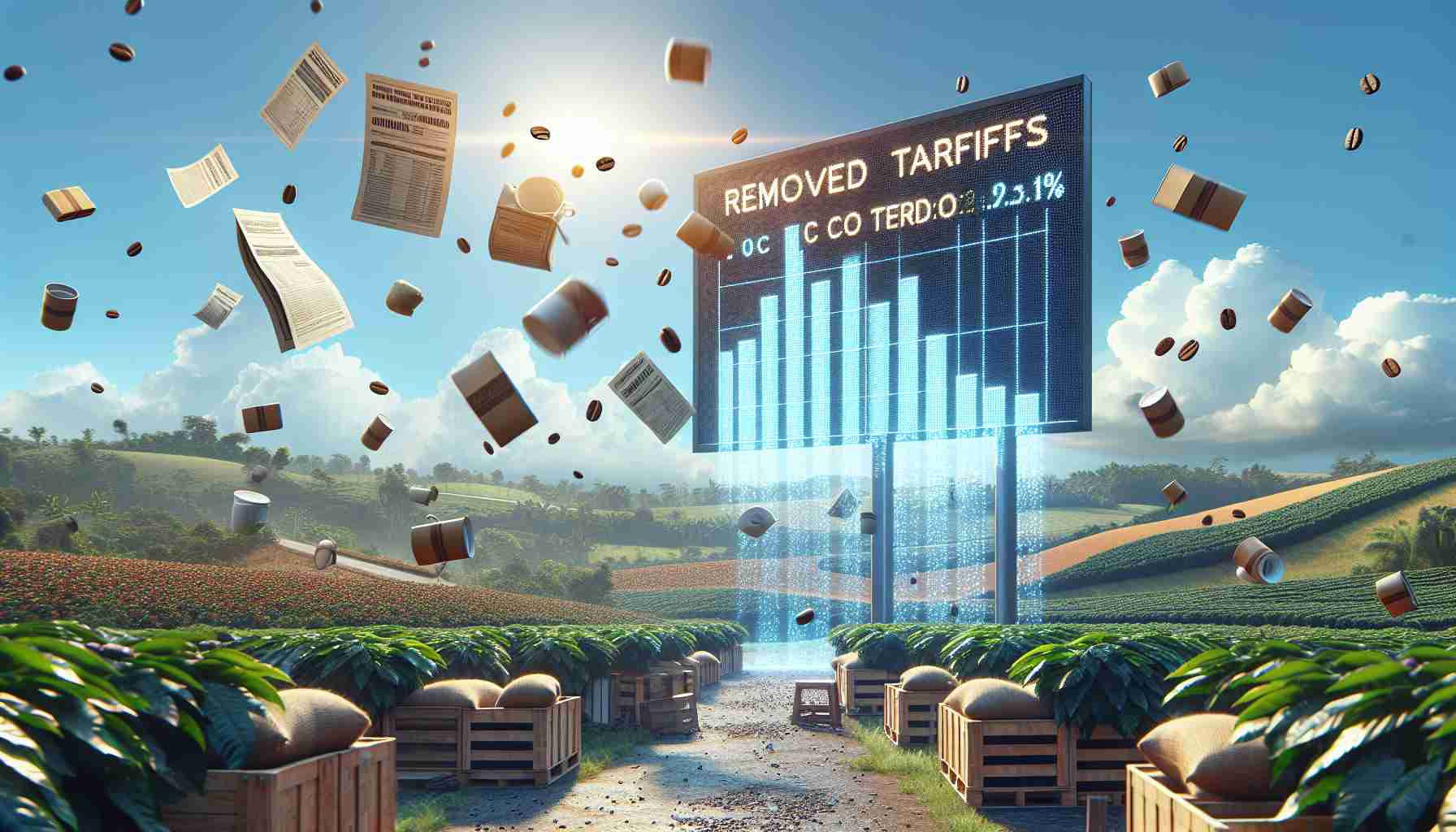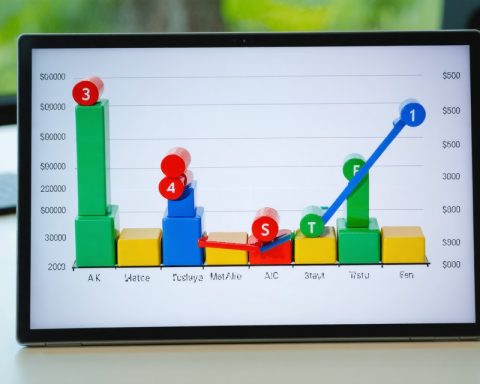Good News for Coffee Lovers
In a dramatic turn of events, the Trump administration announced late Sunday its decision to abandon the planned tariffs and sanctions against Colombia. This shift came after Colombia agreed to accept deported migrants, which previously prompted threats of severe trade measures, including a 25% tariff on Colombian goods, escalating to 50% within a week.
Coffee fans across the U.S. can breathe a sigh of relief as Colombia, a vital coffee supplier, plays a crucial role in maintaining the prices of beloved brews. The prospect of tariffs had raised alarm bells among businesses and consumers alike, as the already fluctuating coffee prices faced the risk of soaring even higher.
Local coffee shop owners, like Jeffrey Knott from Blue Sparrow Coffee, expressed deep concerns prior to this resolution. The combination of external challenges, including climate issues affecting crops and escalating prices over the past months, threatened to make quality coffee harder to afford.
With the crisis now averted, coffee enthusiasts can continue to enjoy their morning rituals without the stress of impending hikes. However, lingering worries remain—if trade tensions escalate again, the threat of new tariffs looms, potentially impacting not just prices but essential products like flowers and petroleum as well. For now, coffee lovers can savor their favorite drinks without a financial pinch in sight!
Global Implications of Trade Stability in the Coffee Market
The recent decision by the Trump administration to forgo tariffs on Colombian coffee offers more than just relief for consumers; it signifies essential trends in global trade dynamics and economic interdependence. Colombia, which supplies about 24% of the coffee consumed in the United States, is not merely a caffeine provider; it symbolizes a broader theme of reliance on international partnerships, especially amid rising geopolitical tensions.
The avoidance of tariffs fosters economic stability for local Colombian farmers, who are already grappling with the impacts of climate change on crop yields. The International Coffee Organization reported a reduction in coffee production due to unfavorable weather conditions, thus making the price of high-quality coffee even more sensitive to external economic shocks. Furthermore, the trade agreement underscores the importance of sustainable practices, as consumers increasingly demand ethically sourced products.
In terms of environmental implications, maintaining stable trade routes may support initiatives focused on eco-conscious coffee farming, which promotes biodiversity and sustainable resource management. However, the potential for future trade disputes could jeopardize these efforts, indicating a need for ongoing vigilance.
As we contemplate long-term significance, shifting consumer preferences toward specialty coffees and sustainable practices may shape industry standards, encouraging innovations in farming and processing. Thus, the recent decision to avoid tariffs fosters a fleeting moment of relief but also highlights the need for enduring commitment to collaborative international trade policies in the coffee landscape and beyond.
Tariff Relief for Coffee Enthusiasts: What You Need to Know
The Impact of Tariff Decisions on Coffee Prices
The recent announcement from the Trump administration to abandon planned tariffs on Colombian goods has been a significant relief for coffee lovers in the U.S. Given that Colombia is one of the largest coffee producers globally, the decision plays a vital role in stabilizing coffee prices which have seen fluctuations due to various market pressures.
Coffee Market Trends and Pricing Insights
1. Market Stability: Colombia’s coffee supplies are crucial for maintaining the balance in U.S. coffee prices. With the tariffs off the table, businesses can expect more stable prices, which benefits both consumers and local coffee shops.
2. Price Predictions: Coffee prices have been volatile, impacted by climate conditions and trade uncertainties. Analysts suggest that if trade tensions remain low, prices may stabilize or even decrease slightly over the coming months.
3. Current Pricing Trends: As of late 2023, the price per pound of Colombian coffee sits around $3.00, reflecting the market’s recovery from previous spikes linked to tariff threats.
How Trade Relations Affect Coffee Lovers
– Supply Chain Insights: Trade relations significantly influence coffee availability. A strong trade relationship with Colombia ensures that U.S. consumers have consistent access to quality coffee at reasonable prices.
– Consumer Behavior: With tariffs off, consumer confidence may rise, leading to increased coffee consumption and potentially boosting local business sales.
Pros and Cons of Tariff Policy Changes
Pros:
– Stable Prices: Eliminating tariffs prevents sudden spikes in coffee prices.
– Consumer Confidence: A more predictable market encourages consumers to buy without fear of price hikes.
Cons:
– Dependency on Colombia: U.S. coffee consumers may be overly reliant on a single source, which could pose risks should trade issues arise in the future.
– Risk of Future Disputes: Although tariffs are currently off the table, renewed tensions could reintroduce risks to supply and pricing.
Security Aspects and Trade Sustainability
The security of coffee supply chains is increasingly linked to geopolitical stability. The abandonment of tariffs highlights the need for sustainable trade agreements that prioritize both quality supply and reasonable pricing. It also underscores the importance of engaging in fair trade practices, which can benefit farmers and ensure environmental stewardship.
Innovations in Coffee Production
With climate change affecting coffee growth, Colombian farms are increasingly adopting innovative practices to sustain their crops. Techniques such as shade-grown coffee farming and water-efficient irrigation systems are becoming more common. These innovations not only help maintain coffee quality but also make the production process more sustainable.
Conclusion: Coffee Lovers Rejoice!
For now, coffee enthusiasts can relish their favorite brews without worrying about immediate price hikes. However, staying informed about market trends and potential future trade conflicts will be essential. The good news is that solutions for sustainable coffee production continue to evolve, providing hope for the future of coffee lovers everywhere.
For more insights on coffee market trends, visit coffee.org for the latest updates.








